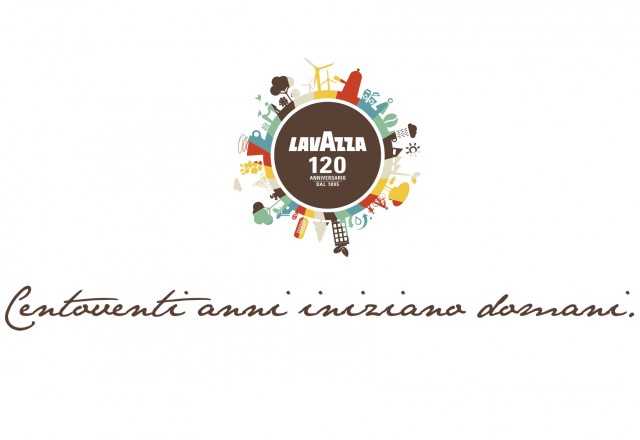Share your coffee stories with us by writing to info@comunicaffe.com.
Lavazza released its first official Sustainability Report (2014) in Italy at Milan EXPO. Prepared in accordance with the Global Reporting Initiative (GRI) standards, the sustainability guidelines were created to establish an international and systematic framework for companies’ accountability and reporting initiatives related to environmental, social and economic performance and impacts of their businesses.
Lavazza’s Sustainability Report captures the company’s 120 year vision, which has operated on the basis of three pillars: quality, innovation and continuous improvement. This consistent vision throughout the company’s history has been integral in positioning Lavazza as the seventh largest coffee roaster in the world, with a presence in 90 countries and growing.
The report aims to provide transparent information on Lavazza’s approach to sustainability, which is a strategic and integral part of the business, creating a competitive advantage for Lavazza and shared value for the entire coffee sector.
Giuseppe and Marco Lavazza, Lavazza’s Vice-Chairmen, presented the report alongside Wayne Wisser, a professor at the University of Cambridge and Director of Kaleidoscope Futures.
Wisser identified strong connections between his model, ‘Creating Integrated Value’ — or Corporate Social Responsibility (CSR) 2.0 — and Lavazza’s systemic model in which social and environmental sustainability are integral components of economic sustainability.
Providing insight to the day’s dialogue was a panel of strategic partners who have contributed to Lavazza’s development of a 360-degree sustainability vision:
• Carlo Petrini, Founder of Slow Food, has collaborated with Lavazza for more than 20 years, most recently on Lavazza’s 2015 calendar titled, Earth Defenders.
• Cino Zucchi, a renowned Italian architect, is in charge of designing Lavazza’s new headquarters, which will open its doors in 2016. The new headquarters is not only a candidate for the Gold level LEED (Leadership in Environmental and Energy Design) certification, but also carries positive social impact by revitalizing Turin’s city center.
• Ralph Appelbaum, founder of his namesake museum exhibition design firm, is developing the Lavazza Museum, which will showcase the company’s heritage and future.
• Ferran Adria – creator of elBulli Foundation, with whom Lavazza has been working to transform coffee into an icon of creativity and research.
• Maurizia Iachino, President of Oxfam Italy, with whom Lavazza is implementing an economic, social and environmental sustainability project in Haiti and the Dominican Republic.
• Catia Bastioli, CEO of Novamont, whose support has enabled Lavazza to launch compostable capsules made of Mater-Bi®, for sale in Italy starting 2016.
“Sustainability is not a solitary journey. It is crucial to integrate the most varied and diverse experiences in the business model, with a systemic approach. Creating shared value with internal and external stakeholders, and regularly investing resources for more sustainable and efficient production processes is the only way for companies to keep growing,” says Giuseppe Lavazza. Marco Lavazza adds, “The 3.9% savings on total industrial production costs that Lavazza generated by improving the efficiency of its production processes in 2014, compared to 2013, will be reinvested in sustainability, thus creating a virtuous cycle, which allows us to generate and regenerate shared value.” As the company continues to grow, so has its economic commitment to sustainability, which increased from $3.1 million in 2012 to $6.6 million in 2014.
In 2011, Lavazza created a dedicated CSR function to define, implement and coordinate company-wide activities focused on sustainability. In addition, the Giuseppe and Pericle Lavazza Foundation, a non-profit that sponsors long-term development projects in coffee-producing countries, is aimed at improving agricultural productivity and disseminating best practices throughout the coffee sector.
Projects include research on minimizing the effects of climate change, promoting entrepreneurship, protecting biodiversity and minimizing the environmental impact of coffee production. In the 2012-2014 period, donations to the foundation increased significantly (+166.67%), from $849,000 in 2012 to $2.3 million in 2014. In that time, the foundation carried out 34 projects in 11 countries across 3 continents, involving more than 65 thousand growers: an increase of 125.52% since 2012.
As part of its commitment to sustainability, Lavazza will annually publish an updated report in accordance with GRI standards.















